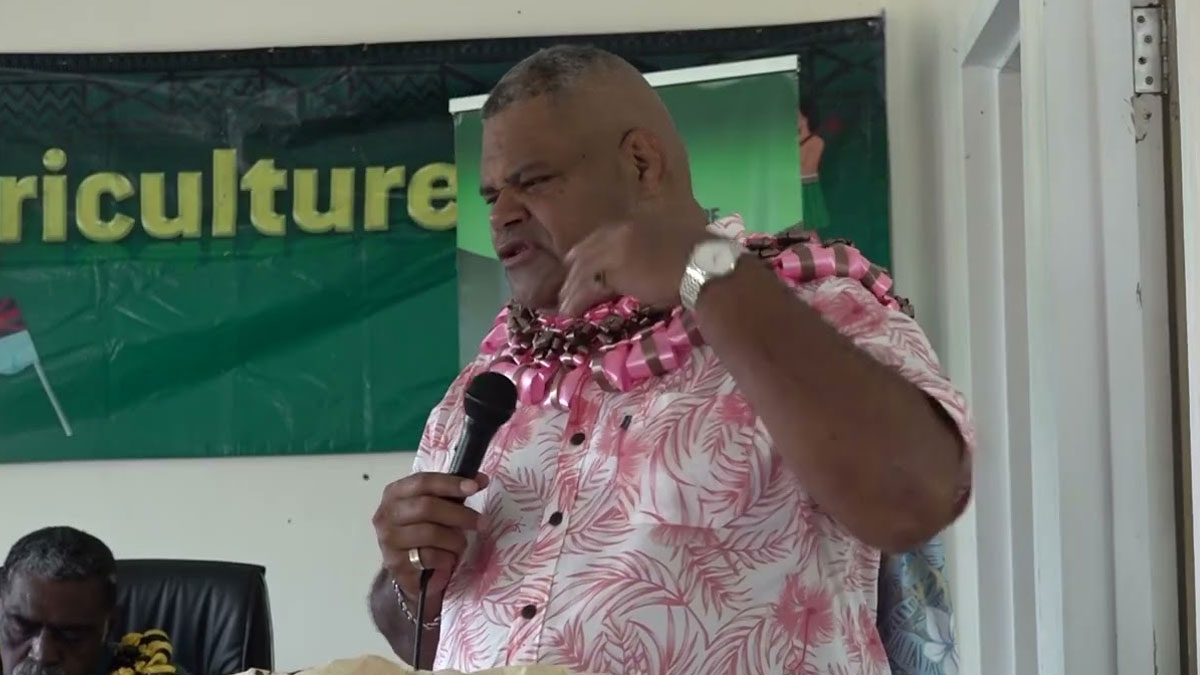
The Minister for Agriculture Vatimi Rayalu has revealed that the country's wheat import bill has increased from $108 million in 2021 to $171 million in 2022.
Rayalu says that Fiji spends around $171 million on wheat import (16% of the total food import bill) whereas Fiji’s Food Import Bill is around $1.070 billion.
While speaking at the handing over of the cassava processing machines to the women of Rise Beyond the Reef, Rayalu says this initiative, marks a significant milestone in the Ministry’s effort to invest in women, accelerate progress, promote sustainable agriculture, and improve rural livelihoods.
He says this $39,000 cassava processing machine represents a tangible step towards enhancing the value chain of cassava production in Fiji and our region.
The Minister says with this new technology, they aim to improve efficiency, reduce post-harvest losses, and ultimately increase income opportunities for all farmers.
He adds this is aligned with their commitment to promoting food security and economic development in the communities. Rayalu says Rise Beyond the Reef is a Non-Government Organisation, that works mainly with women from rural and remote communities.
He says they have trained more than 800 women in cassava flour making and have been testing the local and overseas cassava markets for the past two years.
He further says Rise Beyond the Reef has also assisted farmers with land preparation to around 30 acres in Marinitiwa, Ba, for cassava production, 28 acres in Navosa for tumeric and vanilla production, and 33 acres in Vanua Levu for cassava production.
He adds the production of cassava flour is one of the areas that the company is keen to pursue due mainly to its potential and the opportunities it offers for its farmers.
He further adds that Rise Beyond the Reef has had overseas demand for cassava flour, and with today’s handing over, they will be able to contribute to the establishment of the local and export markets for cassava flour.
The Minister assured the women, that government, through the Ministry of Agriculture and Waterways will implement a wide range of socio-economic activities to support the goal of growing the rural economy and raising the standard of living for our rural communities.
He says the Ministry will prioritise a wide range of programs to revitalize the rural economy and encourage self-reliance including funding for cassava flour machines for rural women and rural boarding schools to become self-sufficient with dairy and fruits.
49 year old Temalesi Vere from Verevere Village in Ra is excited to travel back to her village with the new machines.
She says they have already undergone the necessary training and cannot wait to start their production of cassava flour.
Vere says there are eight villages in the Tikina of Nakorotubu who will access the machines and they are so happy and want to begin right away with producing cassava flour for their families and of course the markets.
She says cassava flour is made by grating and drying the fibrous cassava root and it is a great substitute for wheat and other types of flour.
She adds people can use it in any recipe to replace wheat flour, making baking and cooking gluten-free meals easy.
Stay tuned for the latest news on our radio stations

